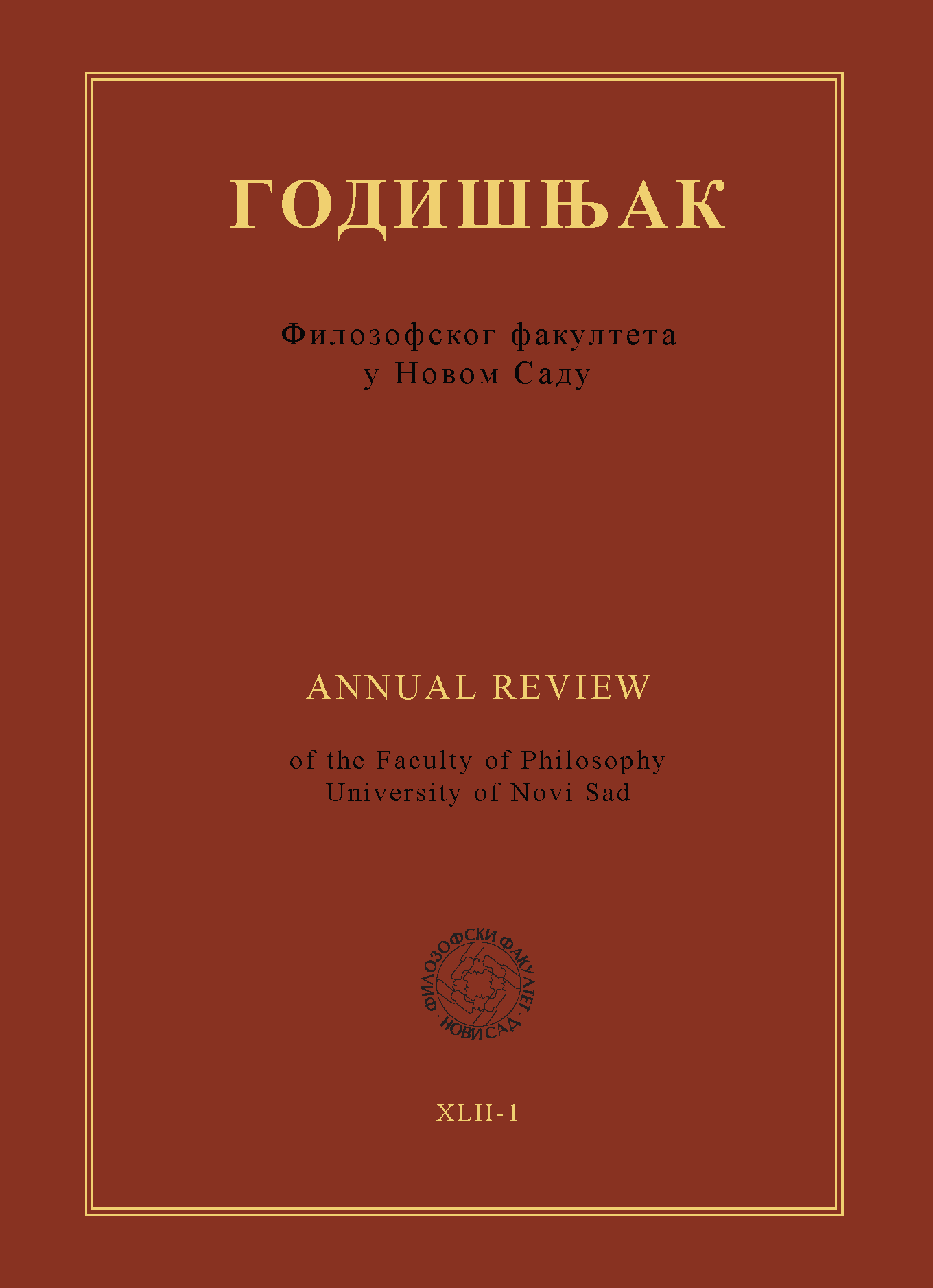Pierre de Ronsard, engaged poet? Discourse on the Miseries of These Times (1562-1584)
Main Article Content
Abstract
Pierre de Ronsard (1524-1585), renowned as the most significant French poet of the XVI century, chief of the literary school known as La Pleiade, in theme predominantly a love poet, enjoyed the status of a court poet before and during religious and civil wars (1562-1598). Despite his elitist beliefs on the specific status of poetry, Ronsard writes elegies and discourses in which he, at first benevolently and then with ever-increasing bitterness, warns his contemporaries, particularly his religious and political opponents - Protestants, of the evils that threaten France. Thus, Ronsard in Discourse on the Miseries of These Times (Discours des miseres de ce temps) evolves into a finest engaged poet, and as the time goes by and the war becomes inevitable, he becomes militant. The aim of this paper is to present different artistic and rhetorical devices which the poet uses to persuade his Protestant adversaries of the absurdity of the armed conflicts among brothers, and to determine the real reasons of their rebellion. Based on a detailed analysis, we can conclude that Ronsard strives to reveal all the negative sides of the incoming conflict using primarily rational arguments : war is senseless, the new faith does not agree with the French tradition but is "imported" from abroad, the society and its institutions are threatened. In addition, as a real orator, the poet wishes to excite his readers, which he achieves by using poignant and compelling descriptions, allegories and personifications of France and its residents, and finally reveals his personal feelings, openly criticizing and attacking his opponents.
Downloads
Article Details
References
Bellenger, Y. (1982). À propos des Discours de Ronsard : Y a-t-il un genre du discours en vers ? U G. Demerson (dir.) (1982). La Notion de genre à la Renaissance. Genève : Slatkine. 195-201.
Bellenger, Y. (1976) L'allégorie dans les poèmes de style élevé de Ronsard. Cahiers de l’Association internationale des «études françaises, 28. 65-80. http://www.persee.fr/web/revues/home/prescript/article/caief_0571-5865_1976_num_28_1_1107
Dassonville, M. (1989) Introduction . U M. Dassonville (dir.) (1989). Ronsard et Montaigne, Écrivains engagés ? Lexington, Kentucky: French Forum, Publishers. 7-17.
Dassonville, M. (1985) Un poète dans la mêlée (1560-1563). U : Dassonville, M. (1985). Ronsard : étude historique et littéraire. IV, Grandeurs et servitudes. Genève: Droz. 109-137.
Feroni, Đ. (2005). Istorija italijanske književnosti I, Podgorica-Beograd: CID-Službeni list.
Ménager, D. (1979). Le Roi, le Poète et les Hommes. Genève: Droz.
Rigolot F. (1989). Poétique et Politique : Ronsard et Montaigne devant les troubles de leur temps. U : M. Dassonville (dir.) (1989). Ronsard et Montaigne, Écrivains engagés ?, Ronsard et Montaigne, Écrivains engagés ?, Lexington, Kentucky : French Forum, Publishers. 57-69.
Ronsard, P. de (1979). Discours Derniers vers. Paris : GF Flammarion.
Smith, M. (1979) Introduction. U : Ronsard, Discours des misères de ce temps, Genève : Droz. 7-26.
----- (1988) Ronsard et ses critiques contemporains, Ronsard en son IVe centenaire & Ronsard hier et aujourd’hui. Genève : Droz. 83-90.




